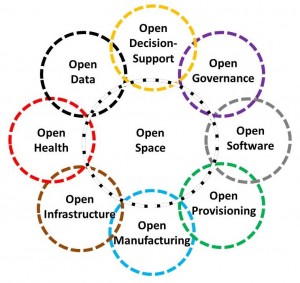
Open access repositories start to offer overlay peer review services
Converting open access repositories into functional evaluation platforms
Bringing back quality control to the scientific community
The use of journal hierarchy for assessing the reputation of research works and their authors, has contributed to a competitive environment that is having a detrimental effect on scientific reliability. Open access repositories administered by Universities or research organizations are a valuable infrastructure that could support the transition to a more collaborative and efficient scholarly evaluation and communication system. Open Scholar has coordinated a consortium of six partners to develop the first Open Peer Review Module (OPRM) for institutional repositories. The module integrates an overlay peer review service, coupled with a transparent reputation system, on top of institutional repositories. It is provided freely as open source software.






